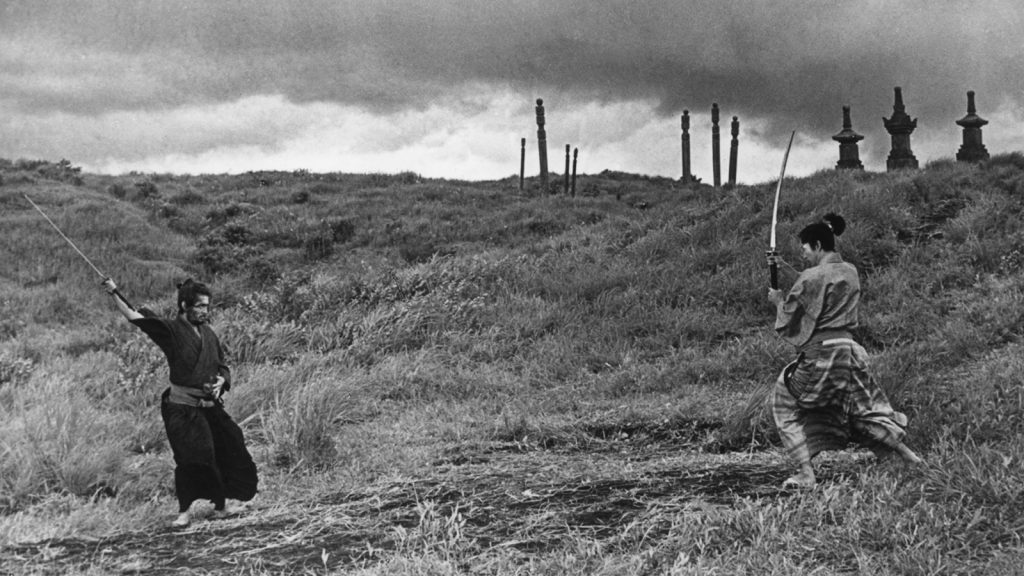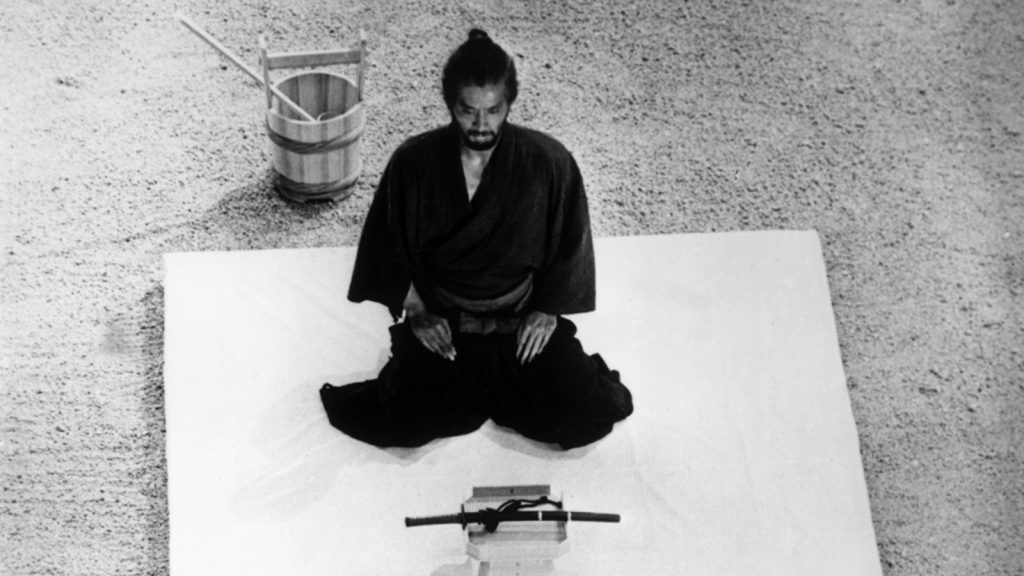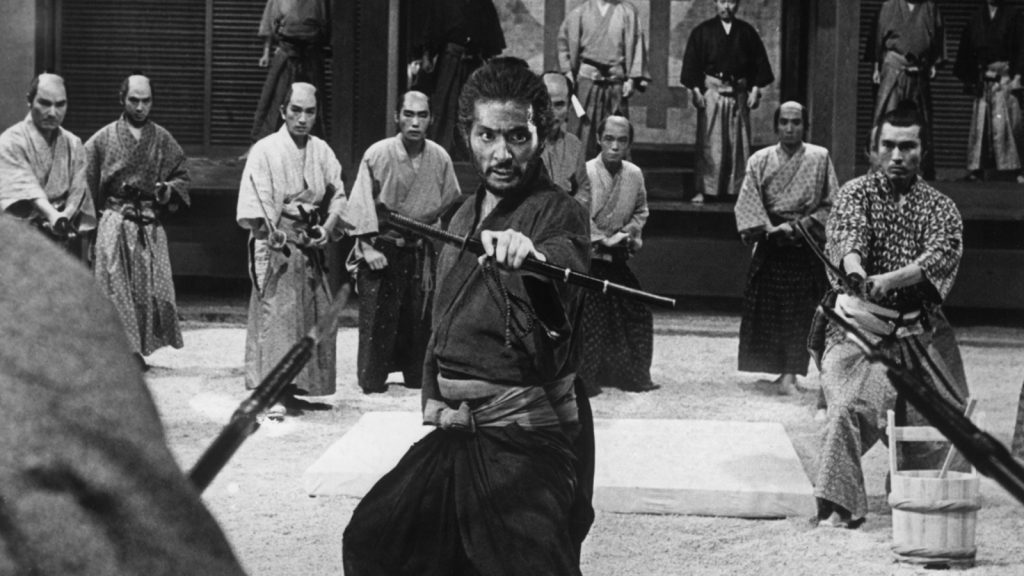Film Review: Harakiri (1962)



Honor and hypocrisy are the blood that flows through the veins of Harakiri, with masterful camerawork, intense performances, and perfect pacing the air that it breathes. Essentially, the film is a stand-off between two men—rōnin, Tsugumo Hanshirō (Tatsuya Nakadai), and the Daimyo’s top aide, Saitō Kageyu (Rentarō Mikuni). In 1630, a masterless samurai (rōnin) has appeared at the gates of the regional feudal lord (Daimyo) with an odd request. He wishes to commit ritual suicide (hara-kiri, or seppuku), in the courtyard of the palace. During these times of peace, the samurai have fallen on hard times. Their Bushido code instructs them that suicide is honorable, disgrace is intolerable.

As a dissuasion, Saitō tells Hanshirō a story about another rōnin who had recently made the same request at their gates. Hanshirō listens quietly, and then tells a story of his own. As Hanshirō’s tale unfolds, Saitō becomes increasingly agitated and defensive, shouting and spewing on about honor and the Samurai code, all the while exposing his own hypocrisy—and, by extension, the hypocrisy of the entire unstable pyramid on which all blind Samurai loyalty is based. Saitō paints himself into a corner of logic that he can’t escape, so he lashes out with violence, but also with shameless and fearful deception.

Harakiri unfolds so perfectly that it’s best for you to discover the rest on your own. Each layer is peeled back to reveal more complexities, but the plot is never overworked or complicated. It develops in such a way that, by the end, not only does it all make the simplest of sense, but the moral center and drive of both adversaries are exposed for all to see. Honor and hypocrisy (or lack thereof) are on full display, and so are their consequences, and strangely, their rewards.

In this type of story, the pacing is everything. The director, Masaki Kobayashi, certainly knows how to take his time, and he’s never afraid to let thoughts linger. The duel between Hanshirō and Saitō isn’t fought with swords but with words, and like swordplay, the subtlest of movements can have a grand effect. Hanshirō, seated on the floor (in a place of vulnerability), rarely moves. When he does, it’s to simply put his hand up, asking for a pause (which is always granted). More often, it’s only his eyes that move. Their place of usual rest is on the floor, but when he raises them to meet Saitō’s, this simple movement has immense power. Saitō, on the other hand, sits on a dais (a place of authority) and moves around frequently. Sitting, rising, pacing—he can’t seem to sit still. He has many excuses for this, but it’s clear to see who is truly in command of the situation.

That’s not to say Harakiri is a slow film. Make no mistake, the pacing is exactly what it should be, and there are moments of explosive violence peppered in at just the right moments. The third act is a brilliant culmination of both men’s stories. The build-up will have you on the edge of your seat, and the climax will have you in awe. Watch how “modern” technology is the only hope of stopping a man who was trained for nothing but death (a common theme in Samurai films), and how a lifeless and empty coat of armor has lost any semblance of what it’s meant to represent—it’s powerless and utterly useless in the face of changing attitudes and modernization.

Masaki Kobayashi has created a masterpiece. Harakiri achieves much more than the average jidaigeki (Japanese period piece). The best of the best is always about much more than what’s seen with the naked eye. Kurosawa, of course, was a master at this, and so too is Kobayashi. A dedicated pacifist, he refused to be promoted beyond the rank of private during the war, and Harakiri is his indictment of the blind patriotism, loyalty, and militarism that led Japan into that conflict in the first place. Harakiri is among the most beautiful, moving, powerful, and important films ever made.
Japan • 1962 • 133 minutes • Black & White • 2.35:1 • Japanese • Spine #302
Criterion Special Features Include
- New, restored high-definition digital transfer, with uncompressed monaural soundtrack on the Blu-ray edition
- Video introduction by Japanese-film historian Donald Richie
- Excerpt from a rare Directors Guild of Japan video interview with director Masaki Kobayashi, moderated by filmmaker Masahiro Shinoda
- Video interviews with star Tatsuya Nakadai and screenwriter Shinobu Hashimoto
- Original theatrical trailer
- Poster gallery (DVD only)
- New English subtitle translation
- PLUS: A booklet featuring a new essay by film scholar Joan Mellen and a reprint of Mellen’s 1972 interview with Kobayashi
